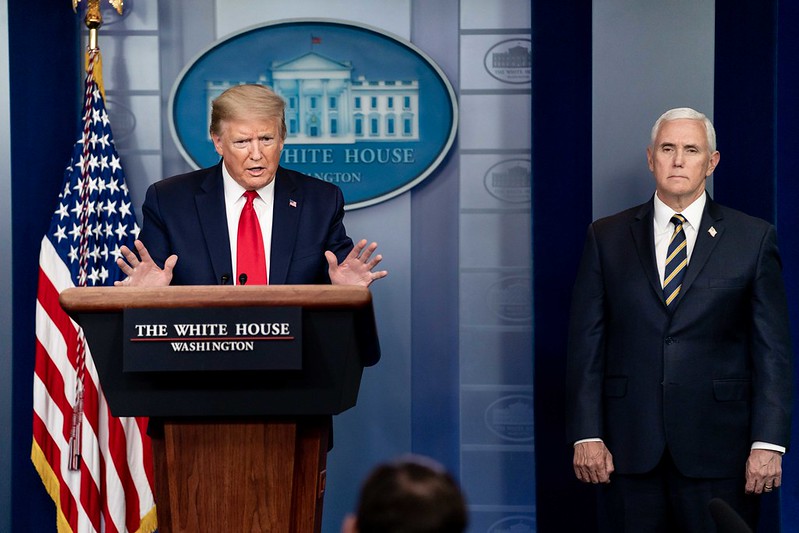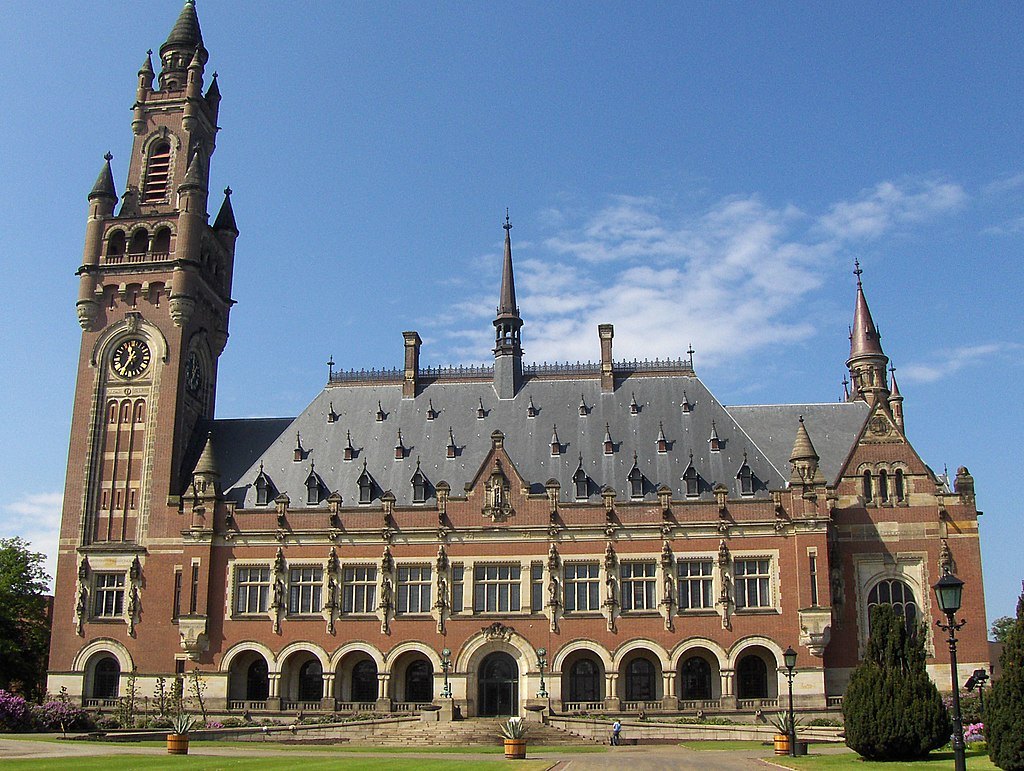Trump’s Coronavirus Immigration Order Is a Restriction in Search of a Rationale
While the proclamation cites the impact of the novel coronavirus on U.S. jobs, the visa categories affected by the suspension have only a minimal effect on employment of citizens or lawful permanent residents.

Published by The Lawfare Institute
in Cooperation With

On April 22, President Trump signed a proclamation suspending issuance of certain immigrant visas. The suspension, which will last for 60 days and may be renewed thereafter, includes many exceptions that will limit its impact. Moreover, the suspension features an exceedingly loose fit between ends and means: While the proclamation cites the impact of the novel coronavirus on U.S. jobs, the visa categories affected by the suspension have only a minimal effect on employment of citizens or lawful permanent residents (LPRs).
As legal authority, the proclamation points to 8 U.S.C. § 1182(f) of the Immigration and Nationality Act (INA), which authorizes the president to bar entry of foreign nationals “detrimental to the interests of the United States”—the same provision that Trump used for his travel ban, which the Supreme Court upheld in Trump v. Hawaii. The new proclamation applies only to those seeking immigrant visas. Its primary impact will be on applicants for employment-based visas, which grant LPR status to persons planning to perform skilled and specialized jobs for which no citizens or LPRs are available; parents, adult children and siblings of U.S. citizens; and spouses and minor children of LPRs. In addition, the proclamation suspends issuance of visas for a group that Trump has long targeted: diversity immigrants who compete in a lottery for 50,000 annual slots that Congress has set aside for nationals of countries—including those in Africa—that don't otherwise send many of their nationals to the United States.
The proclamation’s limited coverage and express exceptions create a suspension that is far narrower than the broad cut-off of immigration that Trump tweeted about in the days before the proclamation was released. The president initially tweeted that he would “temporarily suspend immigration into the United States”—but because the proclamation deals only with immigrant visas, its coverage does not extend to substantial categories of nonimmigrant visas, including students and agricultural workers. Moreover, the proclamation expressly exempts medical professionals. It also excepts spouses and children under 21 or prospective adoptees of citizens. In addition, it will not affect immigrant visas for persons already in the United States, including victims of crime who are eligible for U and T visas—a status that Congress has made available on a humanitarian basis to assist victims who cooperate with law enforcement on trafficking and other issues. Finally, the proclamation excepts members of the U.S. armed forces and treaty investors, who receive a green card after substantial investments in U.S. businesses.
Apart from its limited impact, the proclamation’s most notable feature is the slack between its stated goals and chosen means. The proclamation nods to the impact of economic downturns on “historically disadvantaged groups,” including African Americans, low-skilled workers and people with disabilities. But, as the proclamation itself acknowledges, its restrictions will do little to address these pressing concerns.
Employment-based immigrants already go through a labor certification process that involves extensive vetting by state and federal labor officials. The labor certification process, which can take years, ensures that employment-based visas go only to highly skilled workers performing jobs for which no qualified citizen or LPR has applied. No unskilled foreign workers secure visas through this rigorous process. It is possible that in the wake of the coronavirus pandemic, some qualified skilled U.S. workers might become interested in certain niche jobs that they previously shunned. That is the proclamation’s sole rationale for delaying issuance of employment visas that have already been vetted through labor certification. But the proclamation does not require a fresh labor certification process, which could entail years of delay without a clear anchor in the INA.
The family-based restrictions in the proclamation also lack a coherent rationale. True, some spouses of LPRs may wish to work and will thus compete with citizens and current LPRs for scarce jobs. But some spouses of LPRs might stay home to care for young children—whom the proclamation also bars, though they will not be entering the job market anytime soon. Some parents of citizens may wish to work, but many will be too old. Some siblings of citizens may also want to work, but the INA already requires this subgroup to wait many years for visas, and the small number of sibling visas available will hardly make a dent in employment during the proclamation’s initial 60-day duration.
As another feature of the order, U.S. officials, including the respective secretaries of the Labor, State, and Homeland Security departments, must review nonimmigrant programs and recommend other steps to spur economic growth and prioritize U.S. workers. Some of those measures may require regulatory changes—which will take time—or statutory changes—which will be difficult in a divided Congress, especially in an election year. President Trump may also renew the proclamation after the first 60 days.
It is too early to tell whether any aspect of the proclamation will prompt litigation, as many of Trump’s past restrictions on immigration have. The limited coverage and copious exceptions in the proclamation will limit the number of people harmed and thus limit the pool of possible challengers. Moreover, the proclamation’s applicability only to non-visa-holders outside the United States puts it in the sweet spot of judicial deference to the political branches, as the Supreme Court showed in the travel ban case. That said, in nonimmigration cases, the courts have often viewed a disconnect between ends and means as the calling card of unreasoning or politically expedient animus. Since that disconnect is the proclamation’s signature, perhaps a judicial challenge might gain traction.
Editor's note: This piece has been updated to note the proclamation's suspension of the issuance of diversity visas.





